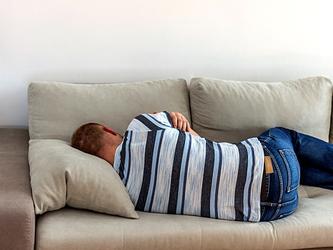Using insight to help homeless people
In October 2020, Walnut Unlimited won a Market Research Society challenge to use insight to help homeless people. The competition was launched by MRS in early 2020 and was aimed at members of the young researchers network &more.
The challenge aimed to help organisations that support homeless people, such as charities or government agencies, with practical insight on the UK’s homeless population.
Our winning proposal focused on building a greater understanding of the ‘hidden’ homeless population – people who do not show up on official homelessness figures, often referred to as ‘sofa surfers’.
Now in its early stages, the project team – Alice Carver, Bessie Pike, Abigail Olingschlaeger and Hannah Kilshaw – is spearheading the research and sharing periodic updates into the findings.
To set the scene, a large piece of qualitative research conducted by Crisis (Sanders, Boobis and Albanese, 2019 ) identified ‘sofa surfing’ as the most common but ‘least visible and understood’ form of homelessness.
Why are we focusing on ‘sofa surfers’?
- ‘Sofa surfers’ are the largest group of core homeless people in the UK (Fitzpatrick et al., 2021 ) and as such warrant further understanding
- We aim to build on the 2019 Crisis research as we emerge from the pandemic, to add to the sector’s understanding of the population
- From a more practical standpoint, it’s the most effective use of our budget within timescales
We will be sharing their stories and measuring a rough size of this population to ultimately provide a more developed understanding of ‘sofa surfers’ and a more holistic view of those who host them. As a result, we hope to give recommendations to the sector to improve practices and lobby government change in policies in relation to sofa surfing.
Fast-forward to today, and this project is well under way. But before the real work begins, we needed to pause, reflect and consult experts working in the homelessness sector to ground our thinking in broader insight from sector experts and available academic views, to ensure our project focus meets the needs of the sector and builds on previous research.
For this, we executed an ‘immersion phase’ in which we conducted eight expert interviews with industry professionals from a range of organisations involved in addressing the issue of homelessness, including charities, government, outreach, academia, and healthcare. Each expert took part in a 30-minute online interview, moderated by the core team, and a literature review.
We interviewed the following organisations:
- AKT (LGBTQ+ Youth Homelessness Charity)
- Aspire Oxford
- Cardiff University
- Centrepoint
- Greater London Authority (GLA)
- Groundswell
- Imogen Blood Associates
- QNI Homeless Health Programme
Clarion Housing and I-Sphere also shared their thoughts with us via email.
We asked the experts about challenges facing the homelessness sector in general as well as talking to them about two potential research areas specifically: sofa surfing and at-risk factors to hidden homeless.
Following the conversations, experts shared relevant papers, research and articles to include in our literature review, alongside other online documents sourced by Walnut Unlimited. These included research papers, blog posts and articles which collectively explored key research areas identified from the expert interviews. So, what have we learned so far?
We have identified several research gaps in this area:
- Greater understanding of views, attitudes, emotions and experiences of those who sofa surf
- Support: Can we understand access to services and pain points in the journey, relating to declining visibility and awareness of the services?
- What role does a host play in someone’s journey? Who are they, what is their situation, experiences and perspective of the situation?
- Intersectionality: How can we better understand those experiencing multiple disadvantages? e.g., migrants, young people
- Focusing on a specific group who experience sofa surfing: what are the experiences of those with a disability, migrants, those in work, etc?
- Identifying how routes into and out of sofa surfing have been impacted by Covid-19, and how people’s experiences have been affected
Keep an eye out for our next article to find out how the research develops from here.
Alice Carver is senior research executive at Walnut Unlimited

We hope you enjoyed this article.
Research Live is published by MRS.
The Market Research Society (MRS) exists to promote and protect the research sector, showcasing how research delivers impact for businesses and government.
Members of MRS enjoy many benefits including tailoured policy guidance, discounts on training and conferences, and access to member-only content.
For example, there's an archive of winning case studies from over a decade of MRS Awards.
Find out more about the benefits of joining MRS here.













0 Comments